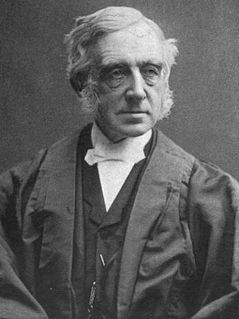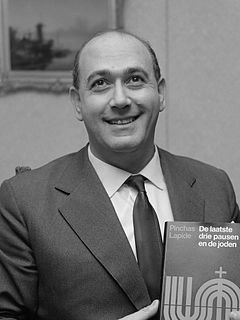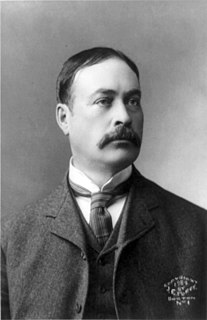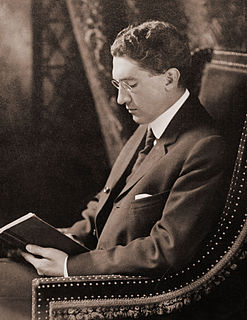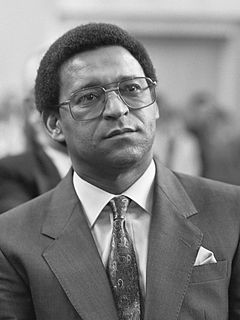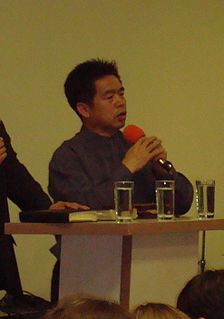Top 1200 Historical Jesus Quotes & Sayings
Explore popular Historical Jesus quotes.
Last updated on December 3, 2024.
To follow Jesus implies that we enter into a way of life that is given character and shape and direction by the one who calls us. To follow Jesus means picking up rhythms and ways of doing things that are often unsaid but always derivative from Jesus, formed by the influence of Jesus. To follow Jesus means that we can't separate what Jesus is saying from what Jesus is doing and the way that he is doing it. To follow Jesus is as much, or maybe even more, about feet as it is about ears and eyes" (The Way of Jesus, Eugene H. Peterson, 22).
Our reasons for believing Jesus existed and also that He was who He claimed to be - the God who came down - are the same reasons for believing any fact of history: the documentation is substantial and it passes all the tests of historical reliability. Scholars - both liberal and conservative - overwhelming agree that Jesus of Nazareth was a man of history and the Gospels, on the main, tell His story accurately.
Jesus clearly believed in the reality of Satan and other principalities and powers. Now, I have very compelling historical, philosophical, and existential reasons for concluding that Jesus is Lord, and if I confess him to be Lord, I don't see how I can consider myself in a position to ever correct his theology, especially about such a foundational theological matter!
Often the Jesus-focused churches are leaning towards a 'social gospel' interpretation of the kingdom, and the 'Paul' churches are talking about being saved from sin and going to heaven. But when we understand both Jesus and Paul in their historical contexts within the first-century Jewish world, the issues become both more complex and ultimately (I believe) more clear.
The obvious example would be Jesus. Jesus is an object of fascination for me. He's an interesting historical character because we don't know much about him. He seems to be a guy who was in touch with something deeper than most people around him were and someone who was very concerned with trying to communicate that.
About six years ago, Life magazine ran an article on the historicity of Jesus and I was floored to find that they conceded the only evidence we have for his existence is in the Gospels. But don't take Life's word for it. In his book The Quest of the Historical Jesus, the most definitive study that's ever been done on the subject, Albert Schweitzer admitted that there isn't a shred of conclusive proof that Christ ever lived, let alone was the son of God. He concludes that one must therefore accept both on faith.
Now let us gather into one bouquet, from the King's garden, these seven fragrant flowers: Jesus the Son of God; Jesus our sin-bearer; Jesus the giver of eternal life; Jesus the keeper of our undying souls; Jesus the hearer of our prayers; Jesus the chastener who can turn crosses into crowns; and Jesus the wonder-worker who changes us into eternal likeness unto Himself! These flowers will keep sweet till heaven dawns.
Religion is not an imitation of Jesus or Mohammed. Even if an imitation is good, it is never genuine. Be not an imitation of Jesus, but be Jesus, You are quite as great as Jesus, Buddha, or anybody else. If we are not ... we must struggle and be. I would not be exactly like Jesus. It is unnecessary that I should be born a Jew.
I would argue that the truth of Easter does not depend on whether there was an empty tomb, or whether anything happened to the body of Jesus. ... I do not see the Christian tradition as exclusively true, or the Bible as the unique and infallible revelation of God. ... It makes no historical sense to say, 'Jesus was killed for the sins of the world.' ... I am one of those Christians who does not believe in the virgin birth, nor in the star of Bethlehem, nor in the journeys of the wisemen, nor in the shepherds coming to the manger, as facts of history.
I accept the resurrection of Easter Sunday not as an invention of the community of disciples, but as a historical event. If the resurrection of Jesus from the dead on that Easter Sunday were a public event which had been made known...not only to the 530 Jewish witnesses but to the entire population, all Jews would have become followers of Jesus.
If there were even one spark of evidence from antiquity that Jesus even may have gotten married, then as a historian, I would have to weigh this evidence against the total absence of such information in either Scripture or the early church traditions. But there is no such spark-not a scintilla of evidence-anywhere in historical sources. Even where one might expect to find such claims in the bizarre, second-century, apocryphal gospels...there is no reference that Jesus ever got married.
The study of the Life of Jesus has had a curious history. It set out in quest of the historical Jesus, believing that when it had found Him it could bring Him straight into our time as a Teacher and Saviour. ... But He does not stay; He passes by our time and returns to His own... He returned to His own time, not owing to the application of any historical ingenuity, but by the same inevitable necessity by which the liberated pendulum returns to its original position.
Who is Jesus to me? Jesus is the Word made Flesh. Jesus is the Bread of Life. Jesus is the Victim offered for our sins on the cross. Jesus is the sacrifice offered at holy Mass for the sins of the world and for mine. Jesus is the Word - to be spoken. Jesus is the Truth - to be told. Jesus is the Way - to be walked. Jesus is the Light - to be lit. Jesus is the Life - to be lived. Jesus is the Love - to be loved
Jesus' death by crucifixion under Pontius Pilate is as sure as anything historical can ever be. For if no follower of Jesus had written anything for one hundred years after his crucifixition, we would still know about him from two authors not among his supporters. Their names are Flavius Josephus and Cornelius Tacitus.
'Believing' cannot tip the scales in making a historical judgement about whether something really happened. I can choose to believe that George Washington threw a silver dollar across the Rappahannock, but my believing that he did it has nothing to do with whether or not he really did do it. So also with the story of Jesus walking on water: Believing that he did it has nothing to do with whether he really did do it. 'Belief' cannot be the basis for historical conclusions; it has no direct relevance.
So these liberals say historical research can't possibly discover the Jesus of faith, because the Jesus of faith is not rooted in history. He's merely a symbol. But listen: Jesus is not a symbol of anything unless he's rooted in history. The Nicene Creed doesn't say, "We wish these things were true." It says, "Jesus Christ was crucified under Pontius Pilate, and the third day he rose again from the dead,' and it goes on from there.
Seminary also introduced me to the historical study of Jesus and Christian origins. I learned from my professors and the readings they assigned that Jesus almost certainly was not born of a virgin, did not think of himself as the Son of God, and did not see his purpose as dying for the sins of the world. .. I also found the claim that Jesus and Christianity were the only way of salvation to be troublesome.
We have endless books about whether Jesus existed, or whether the Jesus we have learned about is really accurate and historical or mythical. We have endless complicated tracts on fine technical issues, but we don't explore Jesus' way to happiness and peace, or try to understand his feelings about God and creation of how he views our relationship with God, or his attitude toward human weakness. Understanding these things could help us immensely in our own search for inner peace and a meaning to life.
I think the best thing a person can do is to read through the Gospels in the Bible and really look at Jesus, because if a person does this, they will realize that the Jesus they learned about in Sunday school or the Jesus they hear jokes about or the skinny, Gandhi Jesus that exists in their imaginations isn't anything like the real Jesus at all.
In 'Labor Day Hurricane, 1935,' Douglas Trevor vividly recreates a historical event. While that is the only story in A THIN TEAR IN THE FABRIC OF SPACE in the historical past, many of the other stories juxtapose fact-both historical and scientific-with narration to an engaging effect, one that distinguishes the voice of this new writer.
There is nothing more negative than the result of the critical study of the life of Jesus. The Jesus of Nazareth who came forward publicly as the Messiah, who preached the Kingdom of God, who founded the Kingdom of Heaven upon earth, and died to give his work its final consecration, never had any existence. He is a figure designed by rationalism, endowed with life by liberalism, and clothed by modern theology in an historical garb.
The Gospel of Thomas, greatly favored in some circles, is ignored by archaeologists, primarily because it exhibits no verisimilitude. It tells us nothing about the historical Jesus and the world he and his disciples lived in. I've heard it said, that if all we had was the Gospel of Thomas, would we even know that Jesus was Jewish?
It is easy to see, though it scarcely needs to be pointed out, since it is involved in the fact that Reason is set aside, that faith is not a form of knowledge; for all knowledge is either a knowledge of the eternal, excluding the temporal and historical as indifferent, or it is pure historical knowledge. No knowledge can have for its object the absurdity that the eternal is the historical.
When I was younger I saw God as a mighty healer who did something for me, but after all these years of valleys and painful trials Jesus has become an ever-present friend who is with me all the time. He has gone from being an historical God to being a living God to me today. I've fallen short many times during these trials and testings, but he has always been faithful. Whenever I've asked him to help me he always has....Jesus is everything and we are nothing.









